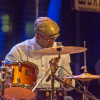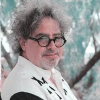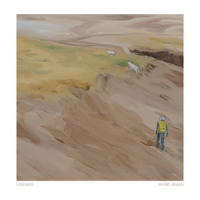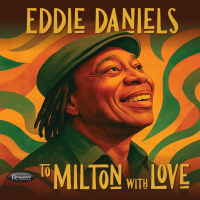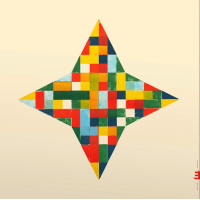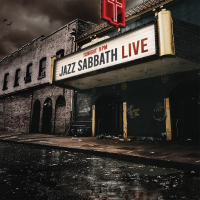Home » Jazz Articles » Album Review » Roy Hargrove's Crisol: Grande-Terre
Roy Hargrove's Crisol: Grande-Terre
But Hargrove never abandoned jazz, the foundation stone of his style. Instead he regarded other genres as part of a rainbow of expression. "The spirit and energy that musicians are putting into it is the same," he told the San Jose Mercury News in 2003. "It's just a different way of speaking, a different dialect. I've been around all kinds of musicians, and if a cat can play, a cat can play. If it's gospel, funk, R&B, jazz or hip-hop, if it's something that gets in your ear and it's good, that's what matters." Hargrove shared this inclusive attitude with a contemporaneous, emerging generation of mainly Black jazz musicians in London, who, from around 2000, began revitalising British jazz with a similarly wide-screen approach. Take a bow, synchronicity.
Hargrove's band Crisol—Spanish for melting pot—represents a relatively conservative direction among his pot pourri of departures. It brought together American jazz and Afro-Cuban music and musicians, hardly a new thing in 1997, when the band released its Grammy-winning debut album, Habana (Verve). First-generation hard bop had included a similar strand from the get-go. But Habana was a magnificent album and is still a joy to listen to. And so is the follow-up, Grande-Terre, which was recorded in 1998 and has not previously been released. Check the opening track, "Rumba Roy," on the YouTube below. In all the essential characteristics it is classic hard bop. The Afro-Cuban rhythms and piano guajeos are entirely of a type with those old Blue Note albums, though presented here with more prominence and played with more authenticity. While the band's personnel is almost entirely different from that on the first album—the only holdovers are trombonist Frank Lacy and percussionists Miguel "Angá" Díaz and José Luis "Changuito" Quintana—the groove is unchanged. Unchanged too is the policy of in-house composing. With the exception of Cedar Walton's "Afreaka," all the pieces were written by Hargrove or members of the band, much as on Habana , which had two covers, both by Kenny Dorham.
There are style differences. Guitarist Ed Cherry's beautiful comping is not classic hard bop, neither is the occasional use of electric keyboards, and the harmonies are sometimes a little more advanced than back in the day (the bittersweet horn voicings on "Lullabye from Atlantis," incidentally, sound remarkably like those written by British alto saxophonist John Dankworth for the soundtrack of Joseph Losey's mega-noir 1963 film, The Servant).
But basically, with Crisol, Hargrove was concerned with digging deeper into the hard bop tradition, refreshing it while not moving fundamentally beyond it. And he and the band do the music proud. Grande-Terre should ring the bell of all who love those enduring masterpieces by Art Blakey, Kenny Dorham and Joe Henderson, and their peers.
Track Listing
Rumba Roy; Audrey; Lake Danse; Kamala’s Dance; B and B; Another Time; Lullaby from Atlantis; Afreaka; Ethiopia; Priorities.
Personnel
Roy Hargrove
trumpetFrank Lacy
tromboneSherman Irby
saxophoneJacques Schwarz-Bart
saxophone, tenorLarry Willis
pianoGerald Cannon
bassJulio Barreto
percussionWillie Jones
drumsEd Cherry
guitarGabriel Hernandez
pianoMiguel "Angá" Díaz
congasJosé Luis "Changuito" Quintana
percussionAlbum information
Title: Grande-Terre | Year Released: 2024 | Record Label: Verve Records
Tags
PREVIOUS / NEXT
Support All About Jazz
 All About Jazz has been a pillar of jazz since 1995, championing it as an art form and, more importantly, supporting the musicians who make it. Our enduring commitment has made "AAJ" one of the most culturally important websites of its kind, read by hundreds of thousands of fans, musicians and industry figures every month.
All About Jazz has been a pillar of jazz since 1995, championing it as an art form and, more importantly, supporting the musicians who make it. Our enduring commitment has made "AAJ" one of the most culturally important websites of its kind, read by hundreds of thousands of fans, musicians and industry figures every month.









